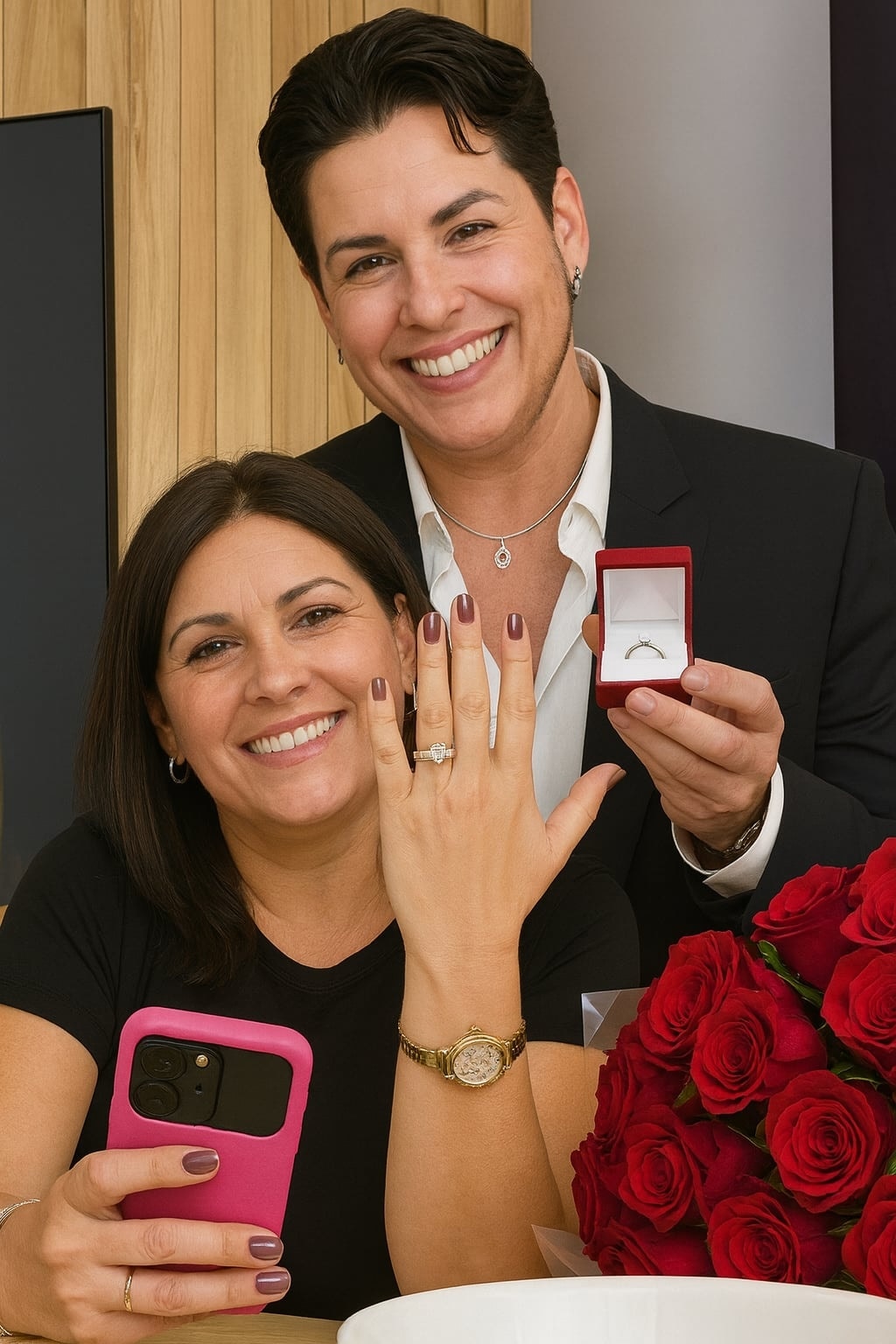The night my mother married my boyfriend, the air felt thick with something I couldn’t name—like the universe had jerked itself off course, snapping out of alignment and leaving all of us suspended in a twisted fairytale that even the bravest storyteller wouldn’t dare to write. The ceremony itself felt unreal, coated in a kind of glossy denial, as if every candle and every forced smile was working overtime to distract from the rot beneath. My mother stood there glowing with a fragile sort of hope, convinced she had finally reclaimed the youth, passion, and sense of worth that life had chipped away piece by piece. And I—frozen, breath shallow—watched the man I once loved slide a ring onto her trembling hand with a tenderness that now felt grotesquely choreographed. I kept telling myself this was just a bizarre moment we’d someday laugh about or at least survive, but deep inside, something screamed that we were crossing a threshold we would never come back from.
None of us—neither my naïve mother nor my shattered self—could have imagined that buried inside his laptop was a truth so chilling, so engineered, that it would unravel everything we thought we understood. We had believed we were trapped in an emotional disaster of our own making, a messy love triangle stitched with jealousy, guilt, and confusion. But what waited in those hidden folders was darker—colder—than any heartbreak. It wasn’t love that had drawn him to either of us. It wasn’t desire or longing or even convenience. It was calculation. It was strategy. It was the work of someone who mapped out vulnerabilities the way others map out travel routes, turning our weaknesses into stepping stones for his own agenda. We thought he had broken our hearts; in reality, he had been studying them.
When she finally opened the encrypted folders on his laptop—after weeks of small suspicions, strange inconsistencies, and an intuition she tried desperately to silence—the fairytale collapsed in a heartbeat. The man who had whispered promises of stability, tenderness, and a second chance at happiness was nothing more than a collection of carefully assembled masks. Fake identities spread across different states, secret debts stacked like silent landmines, flirtatious and manipulative messages sent to multiple women of different ages—all of it painted the portrait of someone who moved through life like a chameleon, shifting colors to match whatever dream his next target was desperate to see. The betrayal wasn’t romantic; it was tactical. We hadn’t just been hurt. We had been hunted.
In the days that followed, our home felt hollow, like someone had sucked the oxygen out of each room. My mother drifted between anger, disbelief, and crushing shame, while I floated in my own fog of humiliation—torn between the heartbreak of losing him and the deeper shame of ever loving him in the first place. Yet slowly, as the shock settled, a strange and fragile alliance began to form between us. The tension that had once made it hard to even share the same room softened into something almost tender. We found ourselves sitting across from each other not as adversaries locked in a silent war, but as two women blindsided by the same predator. The bitterness that once separated us began to crumble under the weight of a truth we could no longer ignore.
Reporting him to the authorities was terrifying, like stepping into a storm without knowing if we’d ever reach the other side. My mother’s voice trembled as she recounted the details, and my hands shook when I handed over screenshots and messages I had once read with love-struck eyes. But that moment—scary, humiliating, exposing—became our first real act of shared strength. The investigation that followed was grueling, unearthing even more lies, more victims, more identities he had worn like costumes in a macabre performance. Yet with every revelation, something inside us steadied. We apologized for the pain we had caused each other, listened without defensiveness, and slowly accepted the hardest truth: our real battle had never been with each other. It had been with the illusions we were so desperate to believe and the man who weaponized those illusions against us.
And as the dust settled, we began—tentatively, clumsily—to rebuild not only our relationship, but the parts of ourselves we had allowed him to fracture.
